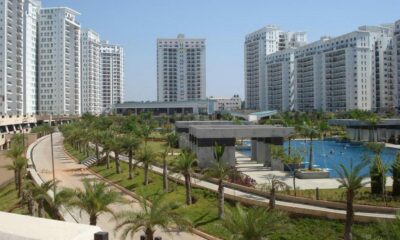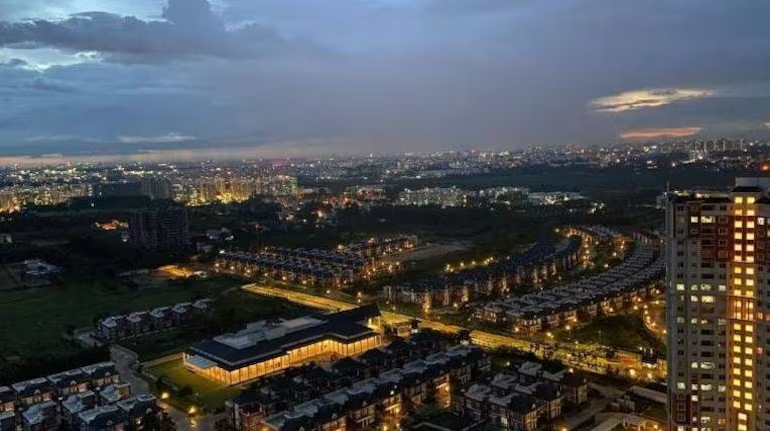Guest Column
Unfolding the crisis of residential project delays: Is the problem all pervasive?


By Dr Samantak Das, Chief Economist and Head of Research & REIS, JLL India
- Shradha Agarwal, Research Analyst, JLL India
Against the common myth that the entire residential real estate segment is troubled, it is the upper middle income and premium property projects that are majorly delayed
- Delhi-NCR and Mumbai are major contributors to delayed projects
- Affordable and mid-income projects do not account for much of the delayed projects except in select cities like Kolkata and Pune
The story of the residential market is uncomfortable when looked at from a buyer’s perspective. Contrary to the already published reports indicating that the real estate sector is struggling with billions of USD worth of delayed residential projects in the top seven cities of Delhi NCR, Mumbai, Pune, Hyderabad, Chennai, Bengaluru and Kolkata, it is has been observed that the problem lies with only the upper middle income and premium category projects.
JLL Research takes a closer look at the problem of ‘project delays’ and for this purpose, a period of five years from the launch of the project has been considered to estimate the delayed/stalled residential projects. To elaborate, the residential projects launched on or before 2014 and still ‘under-construction’ have been referred to as delayed/stalled projects and the total number of flats/apartments in these projects are categorised as delayed/stalled residential units.
Now, let us understand the current market dynamics before painting the entire sector with a single brush.
Mumbai & Delhi-NCR: The two cities account for 84% of the total delays
It is the common perception that the entire residential sector is reeling under the pressure of delayed projects. JLL’s study demystifies this. The aggregate data shows that a total number of residential units classified as delayed/stalled in the top seven cites stands at 4.54 lakh. However, as high as 84 per cent of these units are present in two major metro cities: Delhi NCR (62%) and Mumbai (22%). Needless to say, these two cities had always been on the radar of investors due to the promising returns and the scope for expansion that they offered. The percentage share of the rest of the cities is in a single digit.
| City | No. of delayed/stalled residential units | Share of overall delayed/stalled residential units |
| Bengaluru | 28,400 | 6.3% |
| Chennai | 8,500 | 1.9%< /span> |
| Delhi NCR | 281,000 | 61.8% |
| Hyderabad | 2,400 | 0.5% |
| Kolkata | 17,800 | 3.9% |
| Mumbai | 99,900 | 22.0% |
| Pune | 16,400 | 3.6% |
| India | 454,000 | 100% |
Source: Real Estate Intelligence Services, JLL
Even at the city level, it is important to note that in Delhi, around 3/4th of the residential units are delayed/stalled and one out of every three residential units in Mumbai falls in the same category. For rest of the cities, this proportion is not significant. Hence, the delay in project completion is concentrated in NCR Delhi and Mumbai not a trend across all the top 7 cities of India – a reality that needs to be brought to light!
Where are the funds trapped?
In monetary terms, the delayed/stalled projects stand at a whopping INR 4.62 lakh crore and Delhi NCR and Mumbai again account for nearly 90% of this value. The large proportion of delayed projects being concentrated in these two cities is alarming!
However, as we move forward we will see that the trend of delay varies not only geographically but also across different types of residential projects.
Having said that, the question remains: Is the delay endemic across all categories of residential projects?
JLL data says ’No’.
We classify the houses with prices up to INR 75 lakh as an affordable and mid-segment category for all cities except Mumbai. Due to the high real estate prices, the threshold of affordable and mid-segment in Mumbai is INR 1 crore. While the total value of delayed/stalled projects is INR 4.62 lakh crore, it would be misleading to say that it is across the entire spectrum of housing categories. The reality is not all that grim as the funds are mainly stuck in projects belonging to the upper-mid and premium categories. This is reflected in the average price of residential units across cities. For instance, the average price of delayed residential units stands at INR 1.99 crore for Mumbai as compared to INR 95 lakh in Bangalore, INR 94 lakh in Hyderabad and INR 87 lakh in Chennai.
Although it is the affordable and mid-segment categories that form a substantial proportion of the residential sector activity, they do not account for much of the delayed projects except in select cities like Kolkata and Pune.
| Bengaluru | 95.21 |
| Chennai | 87.91 |
| Delhi NCR | 75.00 |
| Hyderabad | 94.11 |
| Kolkata | 28.83 |
| Mumbai | 199.38 |
| Pune | 65.62 |
Source: Real Estate Intelligence Services, JLL
Macro trends may be misleading.
What lies ahead?
First, residential project delay is not a pan-India phenomenon and only limited to major metropolitan cities of Delhi NCR and Mumbai in terms of quantum as well as value of projects. Second, the slowdown in completion of projects is not across the entire spectrum of housing categories but significantly visible in upper-mid and premium categories. What is needed is perhaps a push from the government and funding agencies along with a strict code of conduct among developers which will improve the situation. Going forward, developers should take cognizance of the situation at hand and accordingly realign their marketing strategies so that their launches are in sync with people’s affordability and demand.
-



 Interviews4 weeks ago
Interviews4 weeks agoHigh Rental Yield, Price Appreciation, Stable Growth, Make Sydney an Ideal Realty Investment Option: Haansal Estate
-



 News3 weeks ago
News3 weeks agoKW Delhi 6 Mall Onboards New Brands
-



 News3 weeks ago
News3 weeks agoManasum Senior Living Launches IKIGAI GOA, A Senior Living Community in North Goa, in collaboration with Prescon Homes
-



 News2 weeks ago
News2 weeks agoGodrej Properties Sells Rs 3k cr+ Homes of Godrej Zenith, Gurugram, within 3 days
-



 News3 weeks ago
News3 weeks agoBridging India Divide: Top 5 Tier- 2 Cities to Focus On
-



 News3 weeks ago
News3 weeks agoCommercial Realty Gets Tech Savvy: Fast Construction, Enhanced Convenience
-



 News3 weeks ago
News3 weeks agoMultipoint Connection – A Definite Boon
-



 News2 weeks ago
News2 weeks agoRBI’s Status Quo on Key Policy Rates to Help Maintain the Real Estate Growth Momentum, Say Industry Stalwarts




























